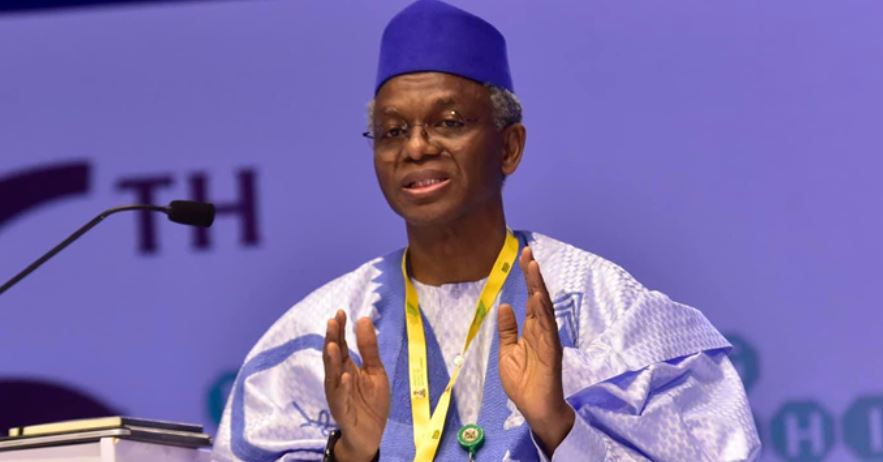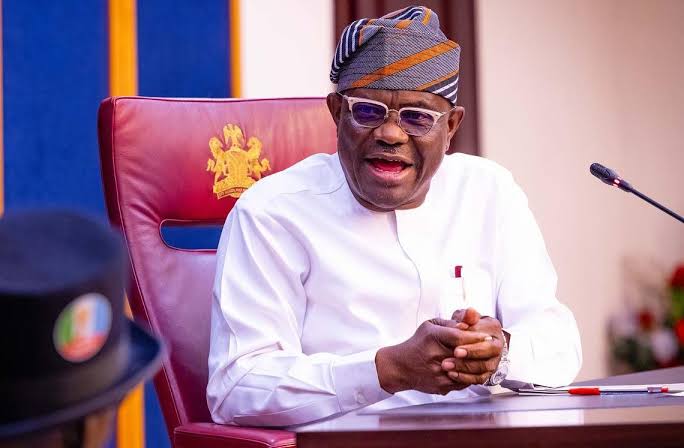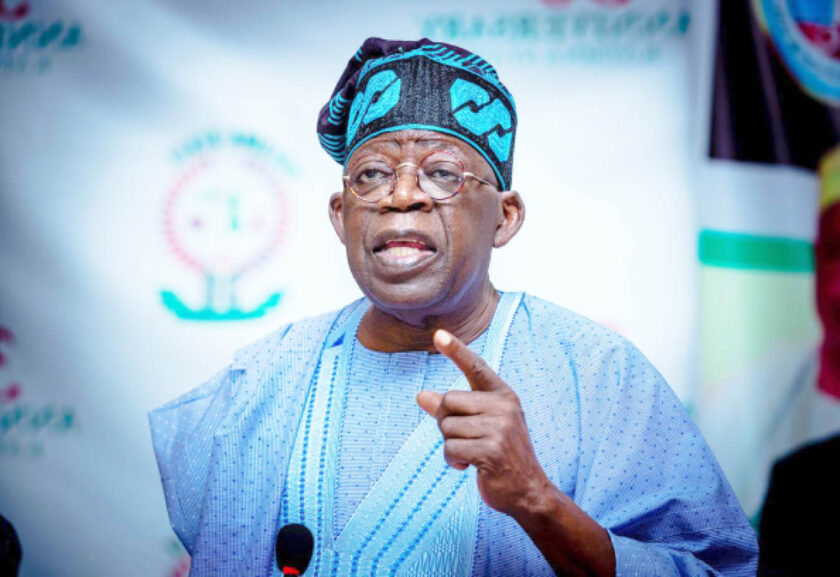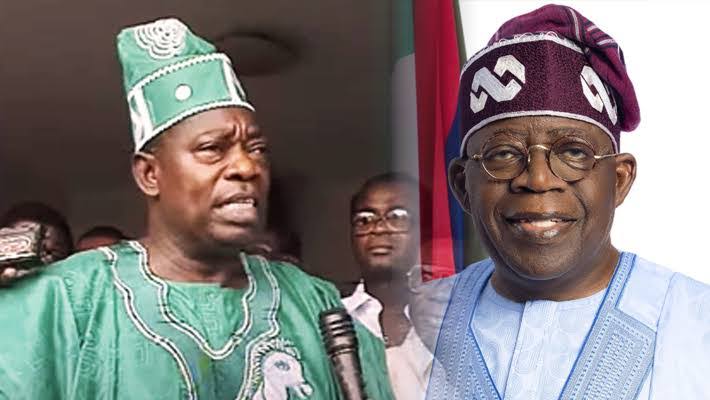El-Rufai’s Cabinet Rejection and Fallout: Analyzing Political & Economic Impact on Tinubu’s Government
The formation of a new government cabinet is often a litmus test for post-election political alliances and power dynamics. In Nigeria, following the inauguration of President Bola Ahmed Tinubu, the process of ministerial nominations sparked considerable interest and, in some cases, controversy. Few nominations garnered as much attention as that of Nasir El-Rufai, the immediate past Governor of Kaduna State. His eventual non-inclusion in the cabinet, despite initially being nominated, has become a significant talking point, leading to speculation about the reasons behind it and the potential political and economic ramifications for the Tinubu administration.
El-Rufai, a highly influential figure in Nigerian politics known for his forthrightness and administrative acumen, was widely expected to play a key role in the new government. His active and often vocal support for Bola Tinubu during the presidential election campaign was undeniable.
How Former Kaduna State President Worked For Tinubu During Election
Nasir El-Rufai was one of Bola Tinubu’s most prominent and dedicated allies in the North-West geopolitical zone, a region critical to Tinubu’s victory. As a sitting governor and a seasoned political strategist, El-Rufai deployed his political machinery and influence in Kaduna and beyond to campaign vigorously for the APC candidate.
His efforts extended beyond just grassroots mobilisation. El-Rufai was a constant defender of Tinubu in the media, engaging in debates and articulating the rationale behind Tinubu’s candidacy and policy proposals. He often countered criticisms against Tinubu, particularly those related to his health, capacity, or past records. El-Rufai’s intellectual contribution was also evident; he participated in policy discussions and presented Tinubu as the candidate best equipped to address Nigeria’s complex challenges. His public statements projected confidence and loyalty, making him a trusted voice within the Tinubu campaign structure, especially in a region where securing substantial votes was paramount.
What Tinubu Said During Election When He Visited El-Rufai
The relationship between Tinubu and El-Rufai during the campaign trail appeared robust and mutually supportive. Tinubu made several high-profile visits to Kaduna State, underscoring its strategic importance and his regard for El-Rufai. During these visits, Tinubu often showered praise on the then-governor, acknowledging his administrative capabilities and his significant contributions to Kaduna State’s development, albeit amidst controversies.
Publicly, Tinubu expressed confidence in El-Rufai’s leadership and often used his achievements in Kaduna as an example of the kind of progressive leadership he intended to bring to the national level. While exact words can vary, the sentiment was consistently one of mutual respect, political alignment, and an implicit understanding that strong allies like El-Rufai would be integral to his future government. These public endorsements further solidify the perception that El-Rufai was a key player in the Tinubu project and was likely destined for a senior role.
Why Tinubu Visited Kaduna Severally During Elections
Kaduna State is not just another state; it is a political and economic powerhouse in the North-West, Nigeria’s most populous region. The North-West accounts for the largest bloc of votes in presidential elections. Winning a significant share of these votes is crucial for any aspiring president.
Tinubu’s repeated visits to Kaduna were a clear strategic move. Firstly, they aimed to consolidate support in a major state within the vital North-West zone. Secondly, they leveraged El-Rufai’s considerable political capital and influence within the state and across the region. El-Rufai commands a dedicated following and has built alliances across different political blocs in the North. Thirdly, Kaduna’s diverse demographics, including a mix of ethnic and religious groups, make it a microcosm of Nigeria; succeeding there signals broader appeal. By visiting Kaduna severally, Tinubu was not only campaigning for votes but also reinforcing his alliance with a key regional leader and demonstrating his commitment to addressing the concerns specific to the North-West.
How Tinubu Remained Silent When NASS Rejected El-Rufai As Nominated Minister in Tinubu Administration
The moment of truth came during the ministerial screening process at the Senate. While most nominees sailed through, three were held back, including Nasir El-Rufai. The Senate cited security reports from agencies like the Department of State Services (DSS) as the reason for withholding their confirmation, stating they needed further clarification and investigation.
What followed was a period of anticipation. Political observers expected President Tinubu, given El-Rufai’s significance and campaign role, might intervene, provide counter-information, or engage with the Senate leadership to facilitate his confirmation. However, the Presidency largely remained silent. There was no public statement defending El-Rufai, no apparent high-pressure lobbying of the Senate on his behalf from the executive arm. Ultimately, while the other two nominees initially held back were later cleared or replaced, El-Rufai’s nomination was effectively dropped as the cabinet confirmation process concluded without his name on the final list.
This silence from the President was interpreted in various ways: acceptance of the security concerns raised by NASS, a strategic decision to avoid a political fight with the legislature early in his tenure, or perhaps an indication that El-Rufai’s non-inclusion might have been anticipated or even quietly assented to by the Presidency for reasons beyond public view.
Why Tinubu Rejected El-Rufai in His Cabinet (Analyzing the Non-Inclusion)
While the Senate was the immediate body that withheld confirmation citing security reports, the ultimate responsibility for submitting, defending, and potentially replacing ministerial nominations rests with the President. El-Rufai was effectively excluded from the final cabinet list under Tinubu’s authority.
Analyzing why Tinubu rejected El-Rufai in his cabinet, or more accurately, why he allowed his non-inclusion after the NASS screening, several factors are speculated by political analysts:
- Acceptance of Security Concerns: The President may have given credence to the security reports presented to the Senate, deeming the issues raised significant enough to warrant exclusion, regardless of El-Rufai’s political value.
- Avoiding Early Conflict with NASS: Pushing hard for a controversial nominee early in the administration could have created friction with the National Assembly, potentially jeopardizing the confirmation of other nominees or future legislative agenda. Tinubu, a veteran politician, might have prioritized a smoother relationship with the legislature.
- Political Balancing Act: Cabinet formation is a complex balancing act involving geo-political zones, ethno-religious considerations, party factions, and rewarding different support bases. El-Rufai is a strong personality; his inclusion might have upset other calculations or power blocs within the government or party.
- Perceived Liabilities: El-Rufai’s tenure as governor was marked by significant achievements but also by controversies, including his handling of security issues in Kaduna and some of his public pronouncements which alienated certain groups. Some within Tinubu’s circle might have viewed these as potential liabilities for a national cabinet position.
- Independence and Control: El-Rufai is known for his independent streak and strong will. Some analysts speculate that including such a dominant figure might pose challenges regarding cabinet cohesion and presidential control over policy direction.
- Alternative Plans: It’s also possible that even before the NASS issues, there were underlying reasons or alternative plans within the Presidency for El-Rufai that did not involve a ministerial portfolio, perhaps a different role or understanding that wasn’t publicly known.
Therefore, while the Senate’s action was the visible hurdle, Tinubu’s subsequent silence and decision not to push back or renominate indicate a calculated acceptance of El-Rufai’s exclusion for a mix of these potential political, security, and strategic reasons.
The Political Economic Value of El-Rufai’s Anger
Following his exclusion, reports and observations suggest a level of disappointment and potentially anger from Nasir El-Rufai. While he has largely remained outside the public spotlight regarding this specific issue, his actions and reported private discussions indicate a shift in his political posture.
The “political economic value” (or perhaps more accurately, the impact or consequences) of this perceived anger and political distance from the Tinubu administration is significant:
- Potential for Vocal Criticism: An influential figure like El-Rufai, when disaffected, can become a powerful critic. His anger transforms him from a loyal supporter into a potential internal opposition figure. Given his intellectual capacity, media savvy, and influence, his criticisms, if vocalized, could resonate widely, challenging the government’s narrative and public image.
- Rallying Point for Discontent: El-Rufai’s situation can become a rallying point for other individuals or groups within the APC who feel sidelined, disgruntled, or disagree with the administration’s direction. This can fragment party unity and create internal dissent.
- Impact on North-West Politics: While Tinubu won the North-West, El-Rufai’s continued influence in states like Kaduna means that alienating him could potentially affect future political dynamics and support for the APC in the region.
- Policy Influence: El-Rufai is known for having strong views on economic and social policies. His exclusion means these perspectives are not directly shaping cabinet decisions. If he chooses to comment from outside, it could add another layer of debate or challenge to the government’s policy thrusts.
- Investor Confidence: Political infighting and public displays of disunity among key political figures can negatively impact investor confidence. It creates uncertainty about the stability and cohesion of the government, which is crucial for economic growth and investment attraction.
- Opportunity Cost: The administration potentially loses the direct contributions of a figure widely regarded as a capable, albeit controversial, administrator and strategist at a time when tackling complex national issues is paramount.
The perceived anger or disaffection of El-Rufai represents a significant political risk and economic variable for the Tinubu administration. It signals a potential shift in alliances and introduces uncertainty into the political landscape. While the reasons for his exclusion are multi-faceted, the consequence is the potential transformation of a valuable ally into a powerful, albeit currently restrained, critic.
As the ancient Roman proverb states:
“The enemy of my enemy is my friend.” But equally, the former friend who feels wronged can become a formidable critic.
The political landscape remains fluid. Whether El-Rufai chooses to remain silent, reconcile, or become openly critical will significantly impact the political dynamics surrounding President Tinubu’s administration and his grip on power, with potential ripples extending into the economic realm. The saga underscores the complex calculus of rewarding political support, managing legislative scrutiny, and navigating diverse interests in the formation of a government.




